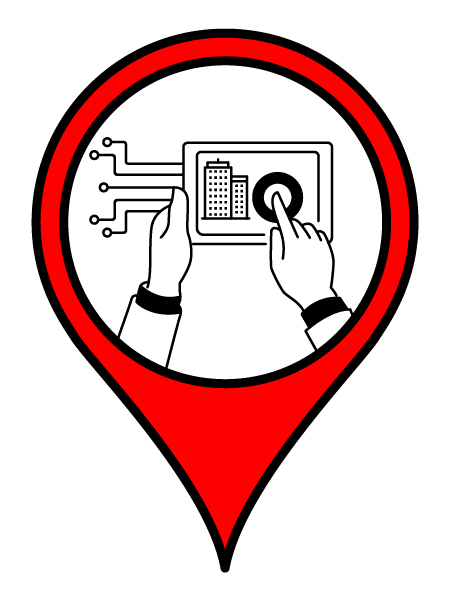Reimagination Opportunities in a Disruptive World
The Global COVID-19 Pandemic is expected to act as a catalyst for transformational change upending business models everywhere. Whilst limited supply and predictable demand have helped protect the Property Industry from widespread disruption, a fundamental reorientation of the value chain may be on the horizon as the Industry reforms around the ultimate customers of commercial space, i.e. Corporate Occupiers (who are challenged with demands to support increasingly fluid business models whilst also improving operational efficiency) and their employees (who after working by themselves during the pandemic are now pondering whether their alternative workplace destination is worth the journey).
This series of thought leadership article explores some of the challenges and opportunities which are likely to arise as corporate occupiers prepare for what the World Economic Forum has defined as ‘The Great Reset’ ahead (move to an all-digital, work-from-anywhere world).
Quote"First, disruptive products are simpler and cheaper; they generally promise lower margins, not greater profits. Second, disruptive technologies typically are first commercialised in emerging or insignificant markets. And third, leading firms’ most profitable customers generally don’t want, and indeed initially can’t use, products based on disruptive technologies. By and large, a disruptive technology is initially embraced by the least profitable customers in a market. Hence, most companies with a practiced discipline of listening to their best customers and identifying new products that promise greater profitability and growth are rarely able to build a case for investing in disruptive technologies until it is too late".
- Clayton M. Christensen, The Innovator's Dilemma: When New Technologies Cause Great Firms to Fail
Reimagination Opportunities in a Disruptive World
In my previous two articles I questioned whether a paradigm shift in demand coupled with a major repurposing of the corporate footprint could positively reshape our Industry ('will it mark the start of a major reorientation of the Property Industry around the occupier ?) and I also questioned whether a downgrading of the office as a principle place of work coupled with reduced days spent in the office risks triggering a switch in focus from people to skills and a corresponding acceleration towards ‘talent in the cloud’ .
In this article I reflect on how the pandemic has exposed the Property Industry to a new world of innovative disruption and I consider the scale of reimagination opportunities ahead as organisations everywhere are compelled to navigate a hybrid world.
Has there ever been a better time to challenge, reimagine and repurpose our physical workplaces ?
The crisis induced virtualisation of workspaces electrified hybrid working practices and employee demands to ‘work from anywhere’. As survey after survey reaffirms a preference to continue the pandemic accepted practice of working at home, organisations everywhere are now compelled, willingly or not, to support a more virtual, distributed workforce.
However, the flip side of supporting a more virtual, distributed workforce is the risk that it accentuates the decades old ‘workplace creative collaboration conundrum’ as a limited on-site community reduces time spent together and ultimately the frequency & volume of spontaneous interactions between colleagues ('collisions').
For many organisations, the unearthing of distributed workforce challenges (supporting increased physical attendance alongside virtual hybrid connections) has been coupled with the challenge of trying to optimise in-person attendance (‘Return to Office’ strategy) whilst also right-sizing the corporate footprint to address reduced workplace utilisation (what happens when an organisation only requires a physical office on Tuesdays, Wednesdays and Thursdays?).
To outperform in this new hybrid world and avoid a workforce living like astronauts, organisations everywhere will need to treat their workplace as a competitive asset, invest significantly more in tomorrow’s workplace technologies and prioritise focus on human centric design, employee experience and intelligence spaces.
In recognition that on-site collisions act as the nexus for future innovation and performance (also critical to the enablement and empowerment of a multiple generation workforce), many organisations today are increasingly adopting a 50% allocation for connection and collaboration spaces and shrinking other workplace requirements.
Any significant reappraisal of the corporate footprint or collaborative workspace environments presents an important opportunity to think creatively, embrace disruptive innovation and reimagine what the office could be tomorrow.
In order to successfully reimagine how a corporate footprint can help improve and promote heads up social interaction, creativity and innovation, corporate occupiers may need to think more like an entrepreneur or a start-up business, steal with pride ideas from other industries and promote a faster pace of innovation, perhaps starting with in-house ideation workshop exercises aimed at imagining new ways to gamify and audit future workplace performance.
What do you think ?
Is the rise of remote work the best thing to ever happen to the office ?
‘Is it now time to let software eat our buildings' will form the basis of my next article.
Blueprint for a Connected Occupier in a Collaborative World
OCCUPIERWORLD® is an independent initiative to develop a trusted and familiar social network / digital community for curiosity-driven CRE practitioners. We believe the future of work is about collaboration & problem solving. To overcome common challenges arising from highly fragmented commercial real estate markets, we have launced a proof of concept for an occupier-focused peer-to-peer social messaging network to help users test ideas, discover collaborators and solve collective problems together.
If you are passionate about corporate real estate performance from an occupier's perspective, log-in via LinkedIn and join our subscription-free community today!




@3x.png?_cb=1618177579)
0 Comments
Recommended Comments
There are no comments to display.
Create an account or sign in to comment
You need to be a member in order to leave a comment
Create an account
Sign up for a new account in our community. It's easy!
Register a new accountSign in
Already have an account? Sign in here.
Sign In Now